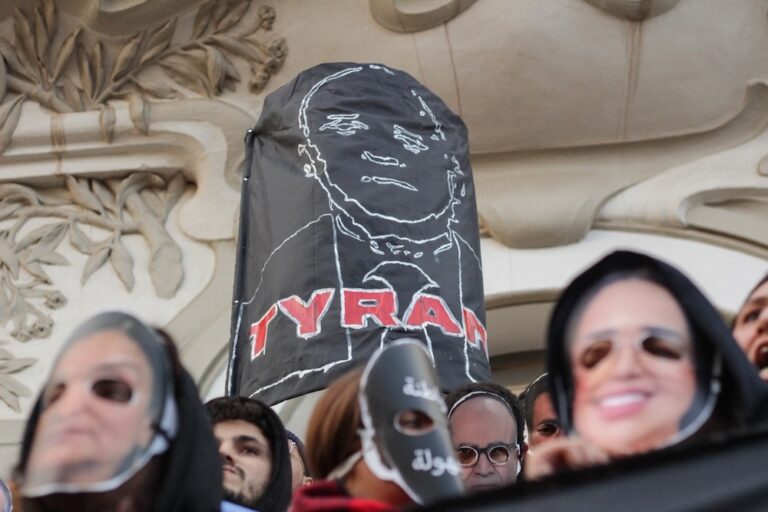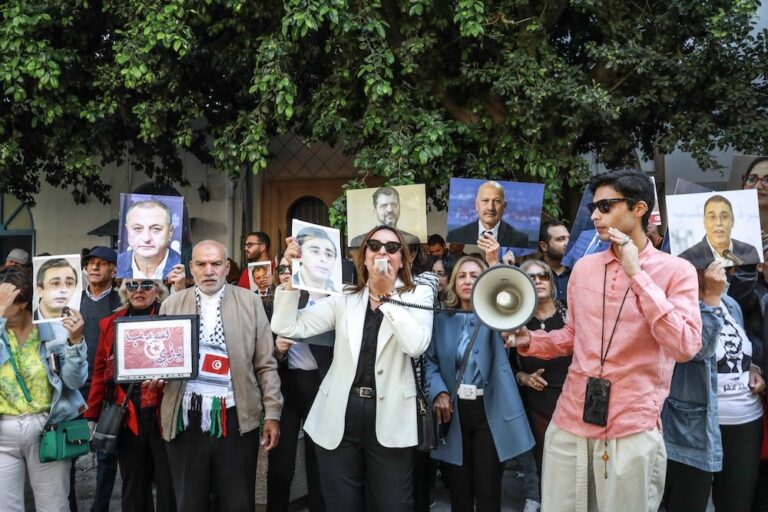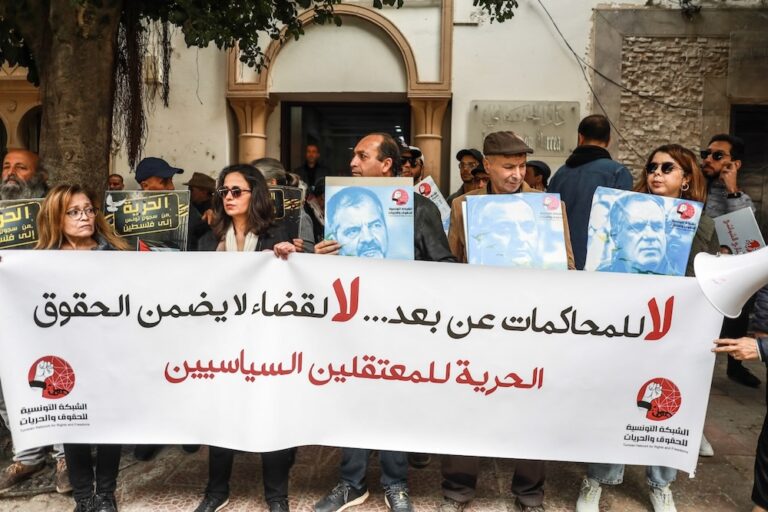Members of the TMG invite the Washington Media Group to take the opportunity of its new relationship with Tunisia to point out to the government that the best way to improve its image abroad is to bring its practices up to international standards of basic human rights.
(TMG/IFEX) – Members of the TMG wrote an open letter inviting the Washington Media Group to take the opportunity of its new relationship with Tunisia to point out to the government that the best way to improve its image abroad is to simply bring its practices up to international standards of basic human rights:
Gregory Vistica, Founder and President
Washington Media Group
525 9th Street, NW
Suite 800
Washington DC 20004
202.628.1280 office
202.628.1218 fax
info (@) WashingtonMedia.com
cc. John Leary, Executive Vice President (jleary (@) washingtonmedia.com)
31 May 2010
Dear Mr. Vistica,
According to a press release issued by the Washington Media Group on 17 May, the Tunisian government has hired your organisation to represent it in the United States.
We, 20 members of the Tunisia Monitoring Group (TMG), are writing today to note that while Tunisia may recently have emerged as an “international business success story,” as suggested in your press release, its human rights record is extremely poor and undermines the country’s claims to progress, no matter how much development Tunisia has seen in other sectors.
The TMG is a coalition of 20 members of the International Freedom of Expression eXchange (IFEX) network of press freedom and freedom of expression organisations.
Despite the official discourse under President Zine El Abidine Ben Ali’s regime that there are no “red lines”, critical voices have routinely been assailed through a wide range of tactics, including harassment, physical assault and imprisonment.
Ironically, President Ben Ali hailed Tunisia’s “will to secure the principles of freedom and democracy” in a 3 May message sent to the chairman of the National Union of Tunisian Journalists (SNJT) and the chairman of Tunisia’s Association of Newspaper Editors in honor of World Press Freedom Day, according to the official Tunis Afrique Presse News Agency (TAP). President Ben Ali claimed that the Tunisian information sector had been allowed to “fully assume its role as part of the freedom of opinion and expression and the sense of responsibility, without any kind of instructions or supervision whatsoever.”
Unfortunately, we have encountered a far different reality. Over the past six years, TMG members have recorded numerous violations against journalists and other human rights defenders who have exposed corruption, revealed public dissatisfaction with policies, or otherwise criticised President Ben Ali and his regime.
Fahem Boukadous, a reporter for the satellite TV station Al-Hiwar Al-Tunisi, was accused of “forming a criminal association liable to attack persons” following his reports on demonstrations against unemployment and corruption in the mining town of Gafsa in 2008. He was sentenced to jail for four years, but is free pending another hearing on 22 June, where his lawyers fear his sentence is likely to be upheld after a local activist’s prison sentence was likewise upheld by the same court in Gafsa.
In a recent development, according to a 19 May article from the TAP, the Tunisian cabinet is debating a draft law that will penalise any Tunisian who “deliberately contacts with foreign sides instigating to harm Tunisia’s vital interests,” with a possible prison sentence of up to five years in peacetime, and 12 years in war. It is conceivable that such a law will be used to target Tunisians who meet with international activist groups, which have urged the European Union to reconsider preferential trade agreements with Tunisia because of the country’s poor human rights performance.
The monitoring and surveillance of independent journalists and human rights activists is widespread and pervasive in Tunisia. Journalists are frequently followed by plainclothes security officers, and have their phones tapped and their correspondence intercepted. Journalists who voice criticism of the President or his policies are often prevented from travelling and excluded from official events. Sometimes they are abducted and beaten, or jailed on apparently fabricated criminal charges.
Tunisia may well be, as your press release notes, an important United States ally in the fight against global terrorism, but it has also used national security to justify the suppression of any criticism or divergent political opinion. The Economist Intelligence Unit ranked Tunisia 141 out of 167 countries in its 2008 Democracy Index.
We invite the Washington Media Group to take the opportunity of its new relationship with Tunisia to point out to the government that the best way to improve its image abroad is to simply bring its practices up to international standards of basic human rights, as guaranteed by the Constitution as well as by Article 19 of the Universal Declaration of Human Rights and the International Covenant on Civil and Political Rights. To polish the country’s democratic façade without acknowledging changes that need to be made is to undermine those struggling, at great personal risk, to ensure that basic, universal human rights are respected in Tunisia.
We will send you the report from the latest TMG mission to Tunisia when it is launched on 7 June 2010.
Yours Faithfully,


